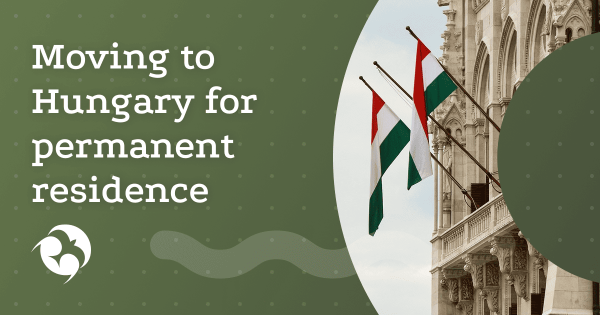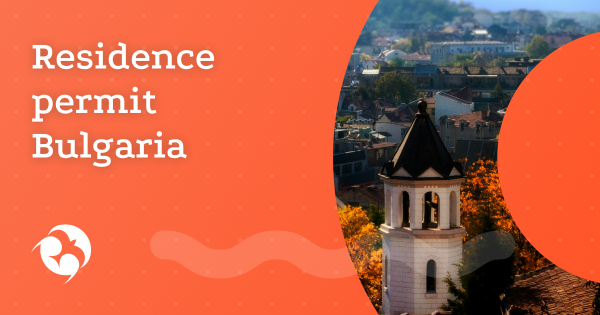Hungary, as a Eurozone country, is a promising migration destination. Starting from the middle of 2024, citizens of 8 countries, will be issued national Nemzeti Kartya migration cards for various reasons with an extension of up to 5 years. Until that time, they were available only to Serbs and Ukrainians. Expats receive this type of residence permit when applying for employment, registering a business, or investing. The law does not apply to seasonal workers, students, and volunteers.
The rights, duties, and conditions for obtaining the status are spelled out in the law for third-country nationals. After 8 years of naturalization, residents are allowed to obtain passports. The figures show the popularity of the country among migrant workers. The number of legalized citizens in Hungary in 2022 reached 1,900. Compared to 2021, the number of expats has more than doubled. Over the past 2 years, the figure has remained unchanged. 50,600 people arrive here every year.
Advantages and disadvantages
Numerous preferences have made Hungary an attractive location. Positive:
- temperate continental climate with cold winters and warm summers;
- free medical care in public institutions;
- low crime rate: 0.83 per 100,000 people;
- access to the European banking system and market;
- economic stability;
- low fixed income tax;
- neutral attitude of Hungarians;
- a relatively inexpensive life.
Key disadvantages:
- Bureaucracy at all levels. It creates difficulties in obtaining residency and citizenship.
- Rising inflation. In 2024, prices increased by 4.6% compared to the previous year: 2.8% for groceries and 4.3% for alcohol and cigarettes.
- Bad roads. Hungary ranks 26th in the European Union in terms of road infrastructure quality and is a leader in accident statistics.
- The language barrier. Residents speak the official language, 16% know English.
To speak Hungarian, you need to attend 1,100 hours of classes, when you need twice as many lessons to learn another European language.
Ways to obtain permanent residence in Hungary
Changes in the laws of recent years have also affected visas. A single-entry visa is now valid for only 3 months, not a year. For long-term stays, relocants are required to obtain residences. In 2 years, the number of bases has increased to 24. The universal “residence permit for different purposes” has been abolished. New types have appeared in the law:
- for guest entrepreneurs/investors;
- highly qualified guest specialists;
- golden visa for wealthy people;
- Intra-company Transfer.
Employment
A year ago, the legislation was more loyal to foreigners. Due to the influx of relocators, the parliament adopted amendments to protect the labor market, introduced new registration/labor fees, and reduced the list of professions. Statuses are given to people with rare specializations and those who represent a valuable asset for the country. Employees with incomes starting from 2,320euros per month become holders of Blue Cards in a year, opening up career prospects. The rest of the employment contracts are allowed to be extended up to 36 months. After the expiration date, migrant workers are required to return and re-arrange contracts with employers in their homeland. Unskilled labor is not included in the immigration record.
Study
There are many accredited universities in the country that are listed in the European Union. The cost of education at Budapest University is 3,300€. For comparison, in Germany, a half-year study at such a faculty is €6,000. Solvent people are given long-term visas only for the period of study. Under the new law, students have the right to earn 30 hours a week and 90 full days on vacation. Half of the period of stay is counted towards the period of naturalization. Young people can come with their family and, after receiving their diploma, request a residence permit for 9 months to find a job or open a startup.
Business and sole proprietorship
There are no legal restrictions on business development. Hungarians and foreigners have the same rights. Expats choose a form of activity and register a company regardless of the amount of the authorized capital. Individuals become self-employed and sole proprietors, open temporary residences for a year with a 2-year extension. After another 3 years, they and family members receive the privileges of permanent residents, continue to operate, paying 9% to the budget.
Investments
According to the new government program, wealthy expats and their families are given “golden” visas for 10 years with an extension for the same period. Conditions for obtaining a migration card:
- sponsorship of investment funds in the amount of € 250,000 from the approved list;
- purchase of apartments starting from €500,000;
- donation of up to €1 million to the university.
Remote work
Fehér Kártya was introduced in 2022 to legalize financially independent people in the territory. The white card is issued to digital nomads from third countries who work remotely and make profits from foreign sources. This number includes people who earn from passive income and company executives. The White Card is not allowed for the self-employed and persons who arrived on Intra-company Transfer visas. They are issued at the consulate and upon arrival at the OIF Immigration Office for a year with an extension for the same period. Foreigners are prohibited from leaving the country for 3 months out of 6 and transporting their family. The length of stay is not included in the naturalization period.
We have described more details about the program, conditions of receipt, extension and taxation in a separate article about the Hungarian visa digital nomad.
Family reunion
This type of visa is available to the spouse of a Hungarian citizen/resident, minor children, and elderly parents. Foreigners receive cards for 3 years with the right to extend for the same period. It usually depends on the immigration status of the inviting party. An individual with the status is required to confirm the degree of kinship, ability to pay, and availability of living space.
EU citizenship
Passports are issued to permanent residents after 8 years of naturalization, provided they travel abroad 45 days a year. Applicants personally submit a dossier to the Unified Office of the Budapest Ministry of Internal Affairs, along with the results of the language exam, culture and history. Applications are considered for up to 6 months. Upon approval, expats take an oath and receive documents within a year.
Step-by-step procedure for obtaining
Legalization in the country involves a multi-stage legal process.
- Obtaining a D visa. The waiting period is 2.5-3 months.
- Obtaining a residence permit. Upon arrival, a residence application is drawn up and sent along with the documents after pre-registration with the National Migration Service or via Enter Hungary service.
- PERMANENT residence. After the end of the residency qualification, applicants receive electronic dossiers for permanent residence in Orszagos Idegenrendeszeti Foigazgatosag. According to the law, residents pay a state fee 15 days before sending, attach photos, signature samples, and fingerprint results.
- Residence. The application processing period is 70 days. After approval, the plastic card is delivered by mail to the applicant at the specified address or invited to the office.
Required documents
The set of papers to be submitted to the OIF depends on the grounds. The lists for each category are published on the Enter Hungary website. Universal list:
- passport and recent photo;
- valid residence permit;
- bank statement;
- consent to leave Hungary if legalization is refused;
- address certificate;
- medical insurance;
- certificate of criminal record.
Businessmen are required to provide information about the company’s registration, a long—term work plan, and the self-employed are required to provide contracts for client services. Students apply for admission certificates from the dean’s offices, and specialists apply for work contracts. The documents are translated into Hungarian/English at the diplomatic mission by sworn translators, and are notarized. Diplomas and certificates are apostilled.
Cost
The price depends on the document submission format and the number of papers to be transferred. Registration remotely via the Enter Hungary platform is cheaper.
| Expenses | Cost, € |
| Entry visa at the Embassy and at OIF/Enter Hungary | 110 and 95/60 |
| Obtaining permanent residence | 64 |
| Card renewal | 59 |
| Certification of papers at the consulate | 22 |
| Blue card in OIF and online | 97/66 |
| Translation | 20 per sheet |
| The cost of a transfer flight | 250 |
| Medical policy | 100-200 |
Businessmen pay for company registration: 1,000-2,000€, office rent: 600€ and above. Additional fees: work permit and family reunification, business activity costs 180€. Financially independent people pay 240€.
Conditions for obtaining citizenship
To obtain a naturalization passport, you must fulfill a number of conditions. Requirements for applicants:
- residence in Hungary, depending on the reason: 12-60 months;
- migration card, rented/purchased apartment;
- stable financial income not lower than the minimum wage;
- insurance for basic medical services;
- friendly attitude towards national policy;
- no travel ban on entry into the country.
- language proficiency.
Refusal and cancellation of the status
According to Eurostat, 1.265 million foreigners live illegally in the European country. Therefore, in 2023, the migration authorities refused entry to 12,500 expats and tightened the requirements. The main reasons for refusals:
- criminal past;
- lack of grounds;
- discrediting visa history;
- being blacklisted by SIS;
- false information;
- lack of financial resources;
- threat to national security.
Foreigners have their residence permit revoked on the basis of violations of the conditions of stay after the end of contracts. They are deprived of their residence after committing administrative/visa violations and entering into fictitious marriages. After the refusal of the application and the cancellation of the card, foreigners have the right to appeal within a week, paying 160 € for the service. The decision comes within 15 days.
The best cities to move to
The capital, Budapest, is most suitable for business people and professionals. There are many opportunities for business scaling and investment. The second largest city in Debrecen is chosen by students. A prestigious university is located here. For foreigners who prefer a measured, quiet life, Veszprem and Shopro, cities without industrial enterprises, are a priority.
Small and medium-sized businesses providing jobs are actively developing in the province. A company is building a nuclear power plant in Paksha, and a large diaspora of compatriots has been formed in the city.
Cost of living
In 2024, the Hungarian minimum wage was €885, and the national salary was €1,585. Residents are eligible for unemployment and disability benefits. The insurance policy partially/fully covers medical expenses. There are also low utility bills. Expenses including apartment rentals in large cities: 1,475€ for one and 2,800€ for spouses with two children. It is 2 times cheaper compared to other EU countries: Norway, Denmark, Germany.











